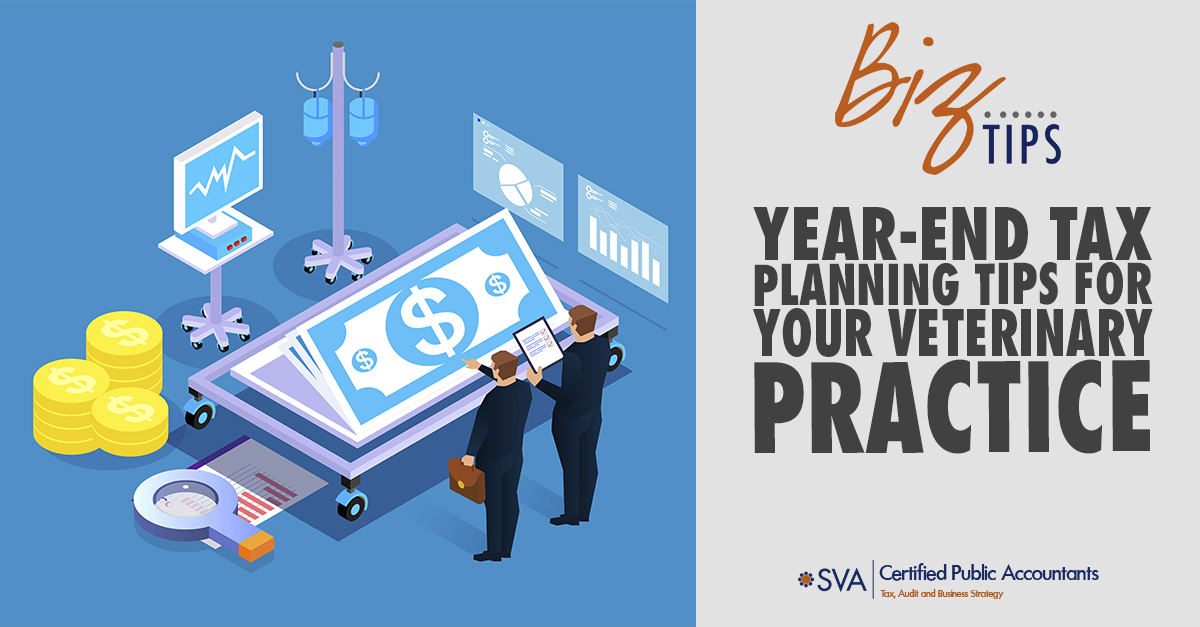| Highlights: |
- Emphasizes proactive planning to avoid unexpected tax bills by reviewing year-end strategies and financial projections before filing deadlines.
- Suggests reassessing equipment purchases and depreciation timing, retirement plan design, and review of ordinary and necessary business expenses to minimize tax liability.
- Encourages veterinary practices to revisit financial practices annually and consult professionals to align tax strategies with current IRS guidance and regulatory changes.
|
Unwanted surprises, especially at tax time, can derail any veterinary practice—like a mid-September call notifying you of an unforeseen tax bill just days before the deadline. Thankfully, with proactive planning now, veterinary professionals can avoid last-minute stress and safeguard revenue.
As of the updated guidance in March 2025, practices should update their planning to reflect changes from the prior year—particularly 2024—as well as consider the impact of PPP loan forgiveness and evolving tax regulations. With year-end closing in, now is the moment to evaluate your financial strategies and take actionable steps to manage or reduce your tax liability.
In addition, the Paycheck Protection Program (PPP) loan provided a cash infusion for many practices when the future was unknown. Current guidance from the IRS states that while the forgiveness of the loan is not taxable income, the related expenses paid with the proceeds are non-deductible for income tax purposes.
So in order to estimate net income and projected taxable income, practices may need to add the amount of the PPP loan forgiveness to their financial statement income. If not planned for, this potential add-back may increase the expected tax liability at filing time. There is still much clarification needed on this subject and a lot will depend on the actual timing and forgiveness of the loan.
In the meantime, vet practices should consider the following:
- Many practices put a hold on significant equipment purchases, remodeling projects, building additions, etc. As such, some practices won’t have the opportunity to accelerate the related depreciation expense on these items. Now is the time to reconsider these items if applicable to you.
- When was the last time you considered whether your company-sponsored retirement plan is the right plan for you right now? A more robust 401(k)/profit-sharing plan could provide a larger tax deduction while increasing the amount stashed away for retirement. It could also provide a nice benefit to your staff at a time when retention is a challenge.
- Are all of your business-related expenses paid for by the business in order to be tax deductible? Current IRS guidance states that for expenses to be deductible, they must be “ordinary and necessary” in your business. This language can be very vague and your expenses should be revisited from time to time to make sure you are minimizing your tax liability.
2020 has been a year of many ongoing challenges. But with some proactive planning now, you can help to avoid unwanted surprises at tax-filing time. Reach out to an SVA professional to start the conversation today.

© 2020 SVA Certified Public Accountants

